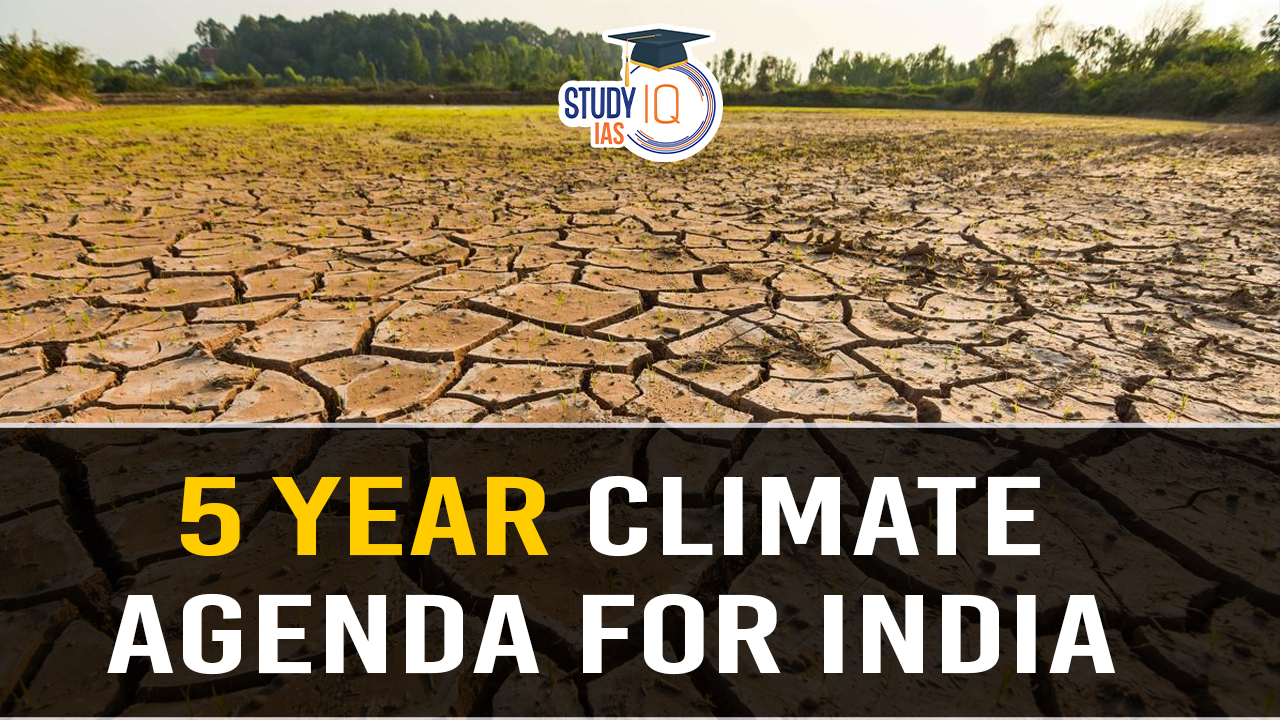Table of Contents
Context
- The Indian government needs to enhance India’s global climate leadership.
- India, having secured a seat at most international tables, must now showcase its prowess in climate action.
India’s Climate Transformation
- Past Decade Achievements: Significant climate intent and progress.
- Transitioned from a hesitant participant to a bold leader in global climate discourse.
- Established global institutions like:
- International Solar Alliance
- Coalition for Disaster Resilient Infrastructure
- Global Biofuels Alliance
- Shaped the Green Development Pact during its G-20 presidency.
- Ambitious Targets
- Net-zero target by 2070.
- Nationally Determined Contributions (NDC) milestones.
- Shift from emission-intensity-based targets to absolute emission reductions.
- Domestic debate on sustainability involves policymakers and the private sector.
- Sustainability-linked Economic Policies: Creation of an Indian emissions carbon trading scheme.
- Scheme intended to operate for 30-40 years.
Next Five Years: Strategy and Goals
‘Go Higher’ – Enhancing Global Leadership:
- Potential to host significant international climate summits like the United Nations Conference of Parties in 2028.
- India should aim for major commitments in global negotiations:
- Agreement on no new investment in oil and gas after 2030.
- Significant commitments on adaptation finance for developing countries to tackle heatwaves, storms, floods, and droughts.
- Need to build consensus on contentious issues over the next four to five years.
- Emphasise the narrative of equity in international forums and create leadership space in global institutions for climate finance.
‘Go Wider’ – Broader Sectoral Targets:
- Beyond the power sector, India should set and communicate sectoral emission reduction targets:
- Focus on zero-carbon two- and four-wheelers in private mobility, benefiting both urban and rural areas.
- Promoting clean energy jobs and economic growth.
- Next NDC for 2035, due next year, is an opportunity to expand energy transition targets to other sectors.
‘Go Deeper’ – Sub-National Climate Action:
- Emphasise sub-national climate action and resilience:
- The Council on Energy, Environment and Water (CEEW) is aiding various states with net-zero plans.
- Collaborations with Tamil Nadu and Bihar for net-zero transition plans.
- Recommendations for deeper integration:
- Create a Centre-State coordination group.
- Incentivize State-level climate actions through the Sixteenth Finance Commission.
- Integrate scientific modelling capabilities in policymaking.
- Establish a unified data measurement, reporting, and verification (MRV) architecture at the State level.
- Ensure coordinated State-level actions while maintaining autonomy, with the Centre as an active facilitator.


 UPSC CSE 2026 New Rules: Complete Guide ...
UPSC CSE 2026 New Rules: Complete Guide ...
 Why Are Tribals Protesting in Maharashtr...
Why Are Tribals Protesting in Maharashtr...
 Rise in Southern States’ Share in Fund...
Rise in Southern States’ Share in Fund...

























